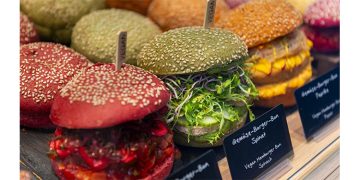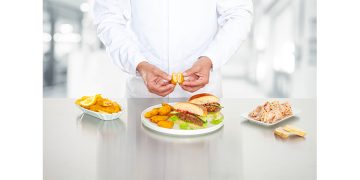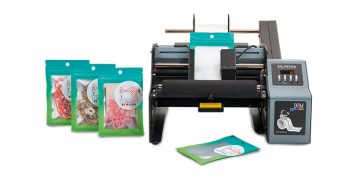From 19 to 22 March 2024, intralogistics specialists at Anuga FoodTec will present innovative solutions for a fully automated supply chain in the food industry. Not only racking storage and retrieval vehicles and shuttle systems for pallets will be presented on the Cologne fair grounds, but also a new generation of autonomous robots. Thanks to artificial intelligence, they become an indispensable partner in the age of Intralogistics 4.0.
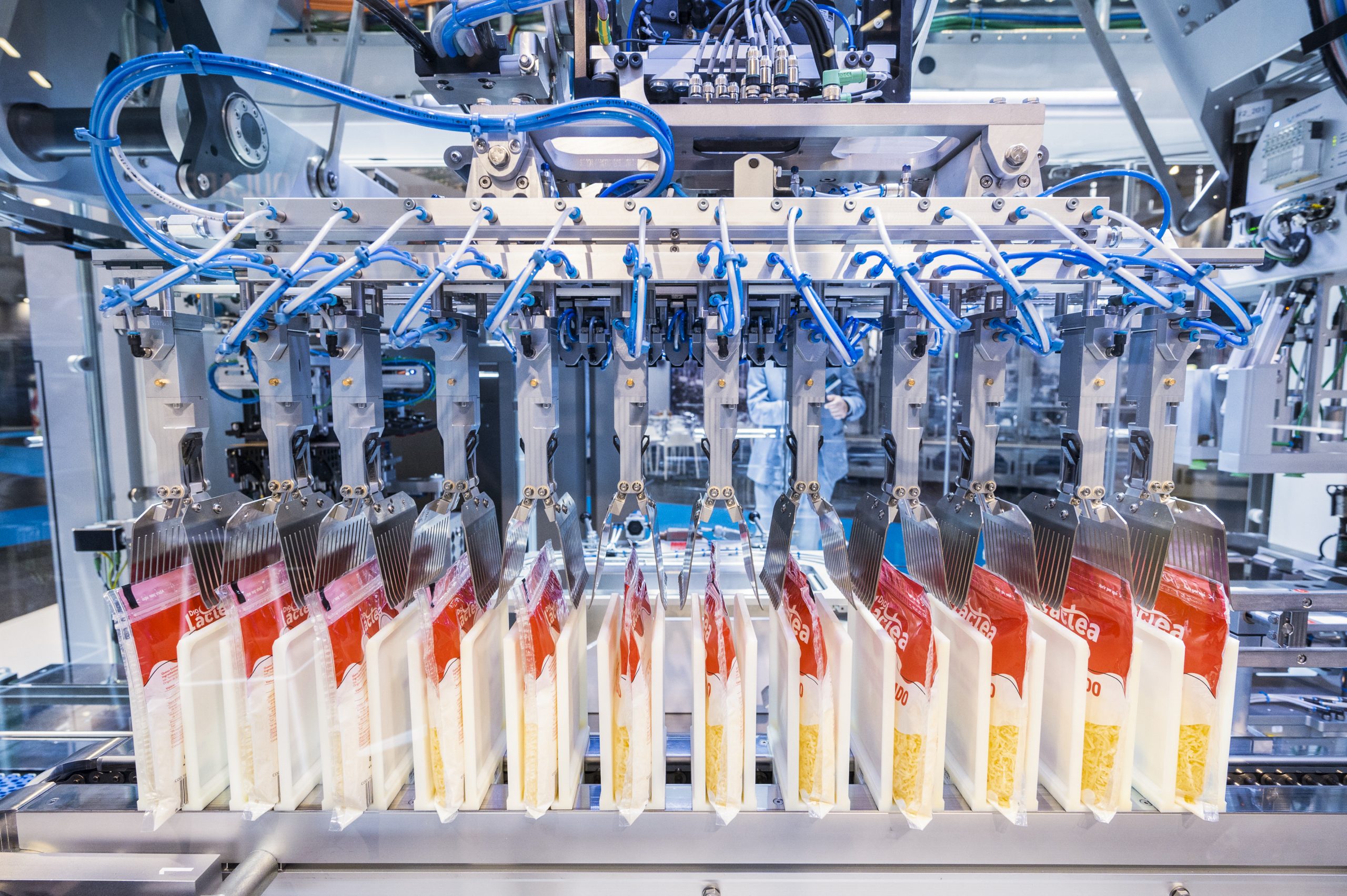 Almost nothing can happen in the modern warehouses and cold storage facilities of the food companies without plastic containers. Durable pallet boxes and robust containers that guarantee hygienic transport and product-compatible storage are therefore just as much in focus at Anuga Food Tec as conveyor belts and mechanisms. Around 120 exhibitors present holistic intralogistics solutions on the Cologne fair grounds, including well-known companies like Apullma, AZO, Behn+Bates, Dinnissen, Habasit, Kuka or WAM and many others.
Almost nothing can happen in the modern warehouses and cold storage facilities of the food companies without plastic containers. Durable pallet boxes and robust containers that guarantee hygienic transport and product-compatible storage are therefore just as much in focus at Anuga Food Tec as conveyor belts and mechanisms. Around 120 exhibitors present holistic intralogistics solutions on the Cologne fair grounds, including well-known companies like Apullma, AZO, Behn+Bates, Dinnissen, Habasit, Kuka or WAM and many others.
The technology providers are embarking on new paths, particularly when it’s about improving the internal material flow: the goal is the seamless transition from production to distribution. Modern automation solutions are at the same time expanding the production facilities into storage and distribution centres thanks to artificial intelligence (AI). A theme that the lectures of the Main Stage Responsibility in Hall 9 also address, for example, in the framework of the panel discussion “Process optimisation in logistics” on 20 March 2024. Driverless transport systems thereby play just as important a role as picking and palleting solutions or conveyor systems that ensure optimal area use.
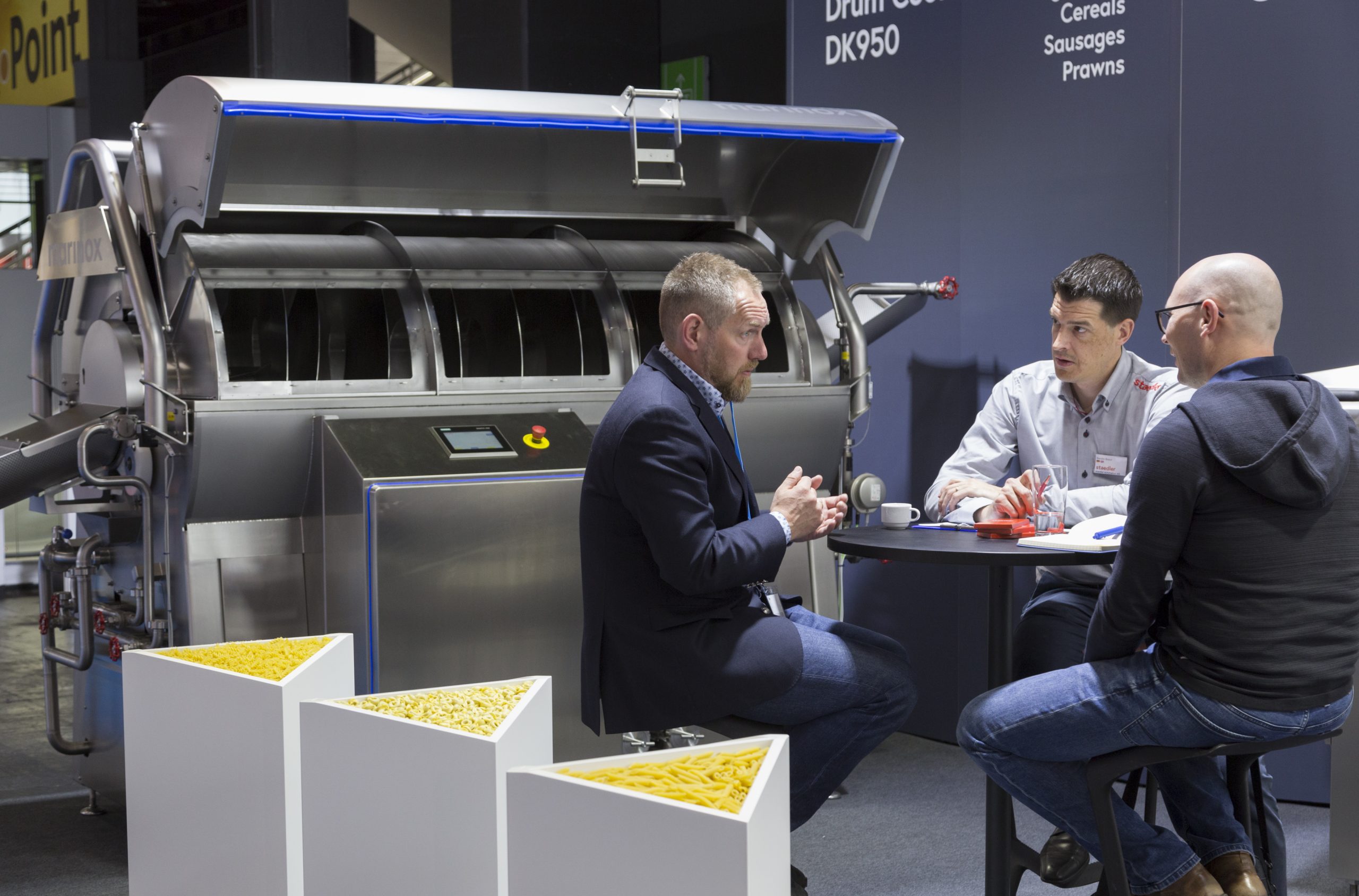 Systems for the “warehouse of tomorrow”
Systems for the “warehouse of tomorrow”
The warehouse of tomorrow must meet high requirements for connectivity. All of the systems used must not only communicate with one another, but also with external systems and processes. The requirements actually involved in practice are shown by a project realised by Anuga FoodTec exhibitor Westfalia for Spaichinger Nudelmacher. The intralogistics specialist replaced the forklifts used to date in the warehouse area of around 4,000 square metres in 2022 with an automatic storage system for more than 9,000 pallets. Thanks to compact, multi-level storage, energy-saving throughput of around 80 load units per hour is possible in two to three-shift operation. The high-bay warehouse also manages with only two corridors for each 25 metre tall racking storage and retrieval vehicle with the load handling device Hub-Satellit with chain conveyors. The warehouse equipped with energy-efficient technologies is also an important step with regard to sustainability. The roof was equipped with a photovoltaic system and the use of packaging materials has been optimised through the automated processes. Behind this is an intelligent software that ensures permanent and reliable availability of goods.
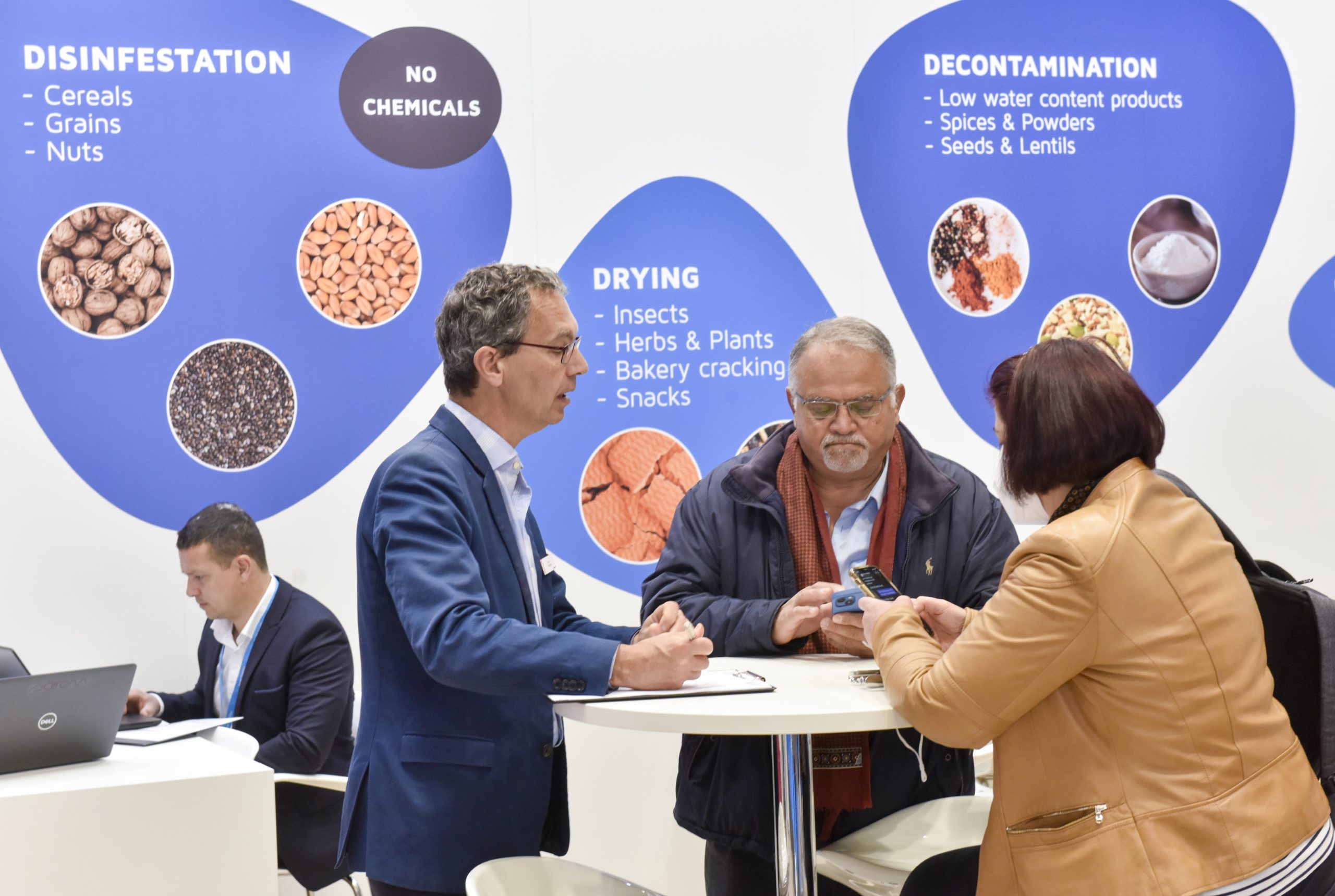 A modern warehouse management system is capable of reproducing and administering all stocks of items, assortments and batches as well as their physical storage locations and units. Even the integration of pick-by-voice, pick-by-light and RFID applications as well as a forklift control system is no problem. In the context of showcases at Anuga FoodTec, exhibitors are showing how their hard and software solutions manage warehouse operations in the food industry and control the optimisation of work processes.
A modern warehouse management system is capable of reproducing and administering all stocks of items, assortments and batches as well as their physical storage locations and units. Even the integration of pick-by-voice, pick-by-light and RFID applications as well as a forklift control system is no problem. In the context of showcases at Anuga FoodTec, exhibitors are showing how their hard and software solutions manage warehouse operations in the food industry and control the optimisation of work processes.
Agility and autonomy at close quarters
Presuming a high degree of automation, learning AI systems in intralogistics can optimise and accelerate all processes from receiving through stock transfer and picking to shipping. New Technologies like 3D image processing for location determination allow driverless transport systems and autonomous mobile robots (AMR) to make intelligent navigation decisions on the basis of their environment. Cameras recognise and follow natural features of the environment, so that the vehicles adapt dynamically to their environment and can determine the safest and most efficient route to the destination. Dispensing points can thus be approached via a driverless transport system vehicle controlled with laser navigation, which gather the raw materials weighed in accordance with the recipe. Use between static reloading stations or conveyor belts is also possible.
Compact and autonomous counter-balance forklifts are an example of such a solution, which ensures smooth and error-free raw material automation. With a bearing load of up to 1,000 kilograms, various scanners and adjustable forks, they can be flexibly used for the transport of europallets, racks and pallet cages both inside and outside. The autonomously navigating end-to-end solutions with which food producers can optimise their intralogistic processes also include mobile robots (AMR). Up to one and a half tons of the most varied raw materials can be transported with an AMR platform to the production process, whereby this also impresses with exact positioning accuracy. Thanks to the QR code reader on top, they can identify their load, thus considerably improving traceability and operational efficiency. 3D cameras protect platform, load and equipment by reliably recognising obstacles in three-dimensional space.
The future of logistics
Scalable robotics solutions are advancing in the internal material flow. They increase efficiency and reliability and reduce operations costs. However, they currently often only play a supporting role in small parts picking. With flexible and rerofittable pick-by-robot systems, intralogistics is provided with another alternative for unburdening people in picking activities—reliably and free of fatigue. The robots are thereby connected with the warehouse management system via WiFi and are directly issued the picking order by this. Shuttle systems can supply the robots with containers in the correct sequence and the required throughput.
Another solution approach to be discussed at Anuga FoodTec 2024 involves collaborating robots, so-called cobots, which provide support with automated picking. Various grippers and self-learning algorithms for object recognition enable them the handling of a broad spectrum of goods and use in various areas. They can also identify and sort out defective packaging or false products. All of this shows that automating intralogistics processes can be a significant factor for the success of food and beverage producers. In the coming spring, from 19 to 22 March, Anuga FoodTec will show which trends Intralogistics 4.0 will influence in the food industry and how the solutions presented in Cologne can be optimally integrated into warehouse management systems.






